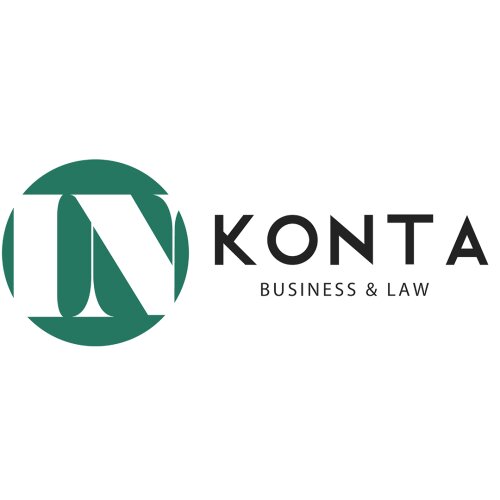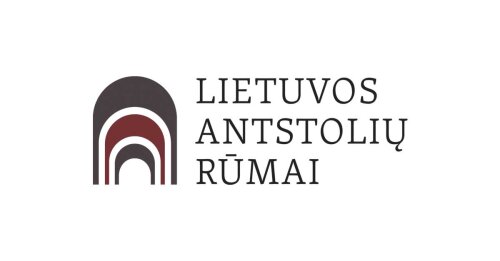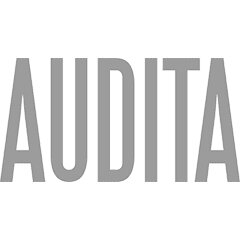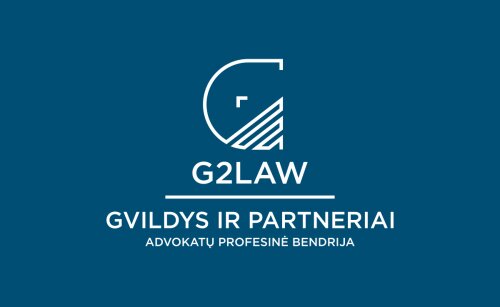Best International Lawyers in Republic of Lithuania
Share your needs with us, get contacted by law firms.
Free. Takes 2 min.
Or refine your search by selecting a city:
List of the best lawyers in Republic of Lithuania

About International Law in Republic of Lithuania:
International law in the Republic of Lithuania deals with legal issues that occur between countries, international organizations, and private entities operating across borders. These laws govern various aspects such as trade agreements, treaties, human rights, and disputes resolution.
Why You May Need a Lawyer:
You may need a lawyer in international law in the Republic of Lithuania if you are involved in cross-border transactions, disputes with foreign entities, need assistance with international business contracts, or if you are facing legal issues while traveling or living abroad.
Local Laws Overview:
In Lithuania, international law is governed by various international treaties, agreements, and EU regulations. The Lithuanian legal system follows a civil law tradition and is based on statutes and codes. Key aspects of local laws that are particularly relevant to international law include trade agreements, investment laws, and human rights conventions.
Frequently Asked Questions:
1. What is the process for enforcing a foreign judgment in Lithuania?
Foreign judgments can be recognized and enforced in Lithuania through a specific legal procedure. The judgment must meet certain criteria and go through the Lithuanian courts for enforcement.
2. Do I need a work permit to work in Lithuania as a foreigner?
Yes, foreigners must obtain a work permit to work in Lithuania legally. The process involves applying to the Lithuanian labor authorities and meeting certain criteria.
3. How can I start a business in Lithuania as a foreigner?
Foreigners can start a business in Lithuania by following the legal requirements for company registration, obtaining necessary permits and licenses, and complying with tax laws. It is advisable to seek legal advice to ensure a smooth process.
4. What are the benefits of entering into international arbitration agreements in Lithuania?
International arbitration agreements in Lithuania offer parties a neutral and private forum for resolving disputes outside of the court system. Arbitration can be faster, more flexible, and allow for greater confidentiality compared to traditional litigation.
5. How does Lithuania handle extradition requests from other countries?
Lithuania has extradition agreements with many countries and follows legal procedures outlined in domestic law and international treaties. The decision to extradite a person is ultimately made by the Lithuanian courts.
6. What are the legal implications of entering into a cross-border contract in Lithuania?
Cross-border contracts in Lithuania are subject to international contract law and must adhere to the applicable legal principles and regulations. It is important to seek legal advice to ensure the contract is valid and enforceable.
7. How does Lithuanian law address issues of international child custody disputes?
International child custody disputes in Lithuania are governed by international conventions, such as the Hague Convention on the Civil Aspects of International Child Abduction. The Lithuanian courts consider the best interests of the child in resolving such disputes.
8. Can I seek asylum in Lithuania if I fear persecution in my home country?
Yes, Lithuania is a signatory to international conventions on refugee protection and has procedures in place for individuals seeking asylum due to fear of persecution in their home country. It is advisable to seek legal assistance to navigate the asylum process.
9. How are international property disputes handled in Lithuania?
International property disputes in Lithuania are subject to the applicable laws and regulations governing property rights and international agreements. The resolution of such disputes may involve legal proceedings in Lithuanian courts or through alternative dispute resolution methods.
10. What are the legal requirements for establishing a branch of a foreign company in Lithuania?
Establishing a branch of a foreign company in Lithuania involves compliance with registration procedures, tax laws, and other legal requirements. It is important to seek legal advice to ensure the branch is set up correctly and operates in accordance with Lithuanian laws.
Additional Resources:
For legal advice and assistance in international law matters in Lithuania, you may consider contacting the Lithuanian Bar Association, the Ministry of Foreign Affairs of the Republic of Lithuania, or reputable law firms specializing in international law.
Next Steps:
If you require legal assistance in international law matters in Lithuania, it is advisable to consult with a qualified lawyer who has experience in handling cross-border legal issues. Be prepared to provide relevant information and documents to help your lawyer assess your situation and provide proper legal advice and representation.
Lawzana helps you find the best lawyers and law firms in Republic of Lithuania through a curated and pre-screened list of qualified legal professionals. Our platform offers rankings and detailed profiles of attorneys and law firms, allowing you to compare based on practice areas, including International, experience, and client feedback.
Each profile includes a description of the firm's areas of practice, client reviews, team members and partners, year of establishment, spoken languages, office locations, contact information, social media presence, and any published articles or resources. Most firms on our platform speak English and are experienced in both local and international legal matters.
Get a quote from top-rated law firms in Republic of Lithuania — quickly, securely, and without unnecessary hassle.
Disclaimer:
The information provided on this page is for general informational purposes only and does not constitute legal advice. While we strive to ensure the accuracy and relevance of the content, legal information may change over time, and interpretations of the law can vary. You should always consult with a qualified legal professional for advice specific to your situation.
We disclaim all liability for actions taken or not taken based on the content of this page. If you believe any information is incorrect or outdated, please contact us, and we will review and update it where appropriate.
Browse international law firms by city in Republic of Lithuania
Refine your search by selecting a city.














